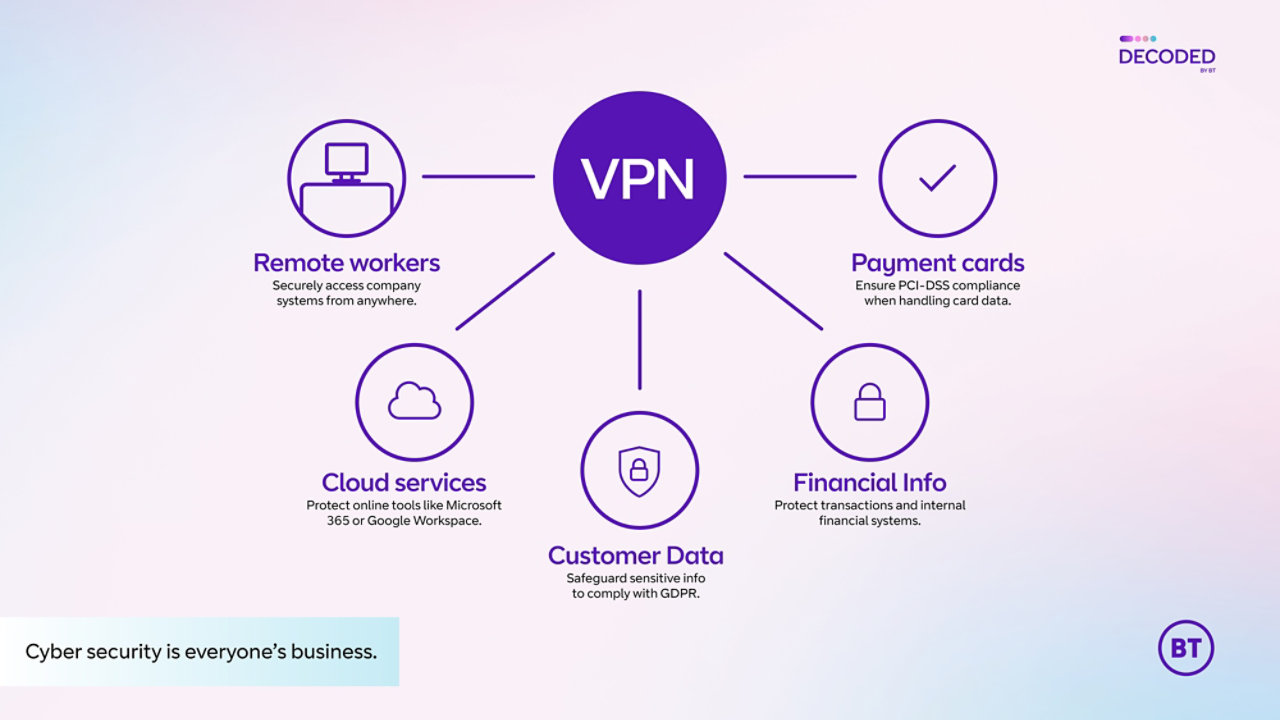What is a VPN, and when would your business need one?
Learn about virtual private networks (VPNs), how they work and why your business might need one. VPNs can keep your business and customer data secure.
VPN stands for virtual private network. Think of it as a secure digital ‘tunnel’ that’s created between the user and whatever they’re accessing online, for example, your company’s internal systems.
Any data that goes through this tunnel is heavily encrypted. That means it’s almost impossible for anyone else to unscramble it. So, even if a cyber-criminal intercepts the data in transit, they wouldn’t be able to make any use of it.
This makes VPNs particularly useful if your employees need to work securely when they’re away from the office or working from home.
The top 3 security benefits of a VPN
Here are some good reasons to use a VPN:
- All data travelling via a VPN is encrypted
Your employees can work safely from anywhere, without having to worry about whether the Wi-Fi they’re using is secure or not. - VPNs improve privacy when online
VPNs prevent internet service providers tracking a user’s online activities, as well as blocking their IP address, a unique number assigned to every device that’s connected to the internet. Think of it as being like your street address. Therefore, all your online activities remain secret. For example, you could view a competitor’s website without them tracking you. Or you could avoid being subjected to higher prices by companies who know you’ve expressed an interest by previously visiting their website. - VPNs are relatively cheap and easy to set up and operate
Using a VPN can add an extra layer of protection to your business without having to invest a lot of time and budget. And if you choose VPN as a Service (or cloud VPN), it’s even easier. That’s because the VPN is managed by someone else and you just pay a subscription.
VPNs can be a great tool for improving your business’s security without having to invest a lot of money.
When to use a VPN

The future of VPNs
A new development that’s worth keeping an eye on is the way machine learning (which is a kind of artificial intelligence) is being integrated into VPNs. This is with the aim of instantly detecting security threats and automating actions to protect against them, adding a powerful extra layer of security.
Key takeaways
If you only remember three things, make them these:
- VPNs can be a cost-effective and relatively easy way to improve your company’s security.
- They’re particularly helpful if employees need to access your internal systems while away from the office.
- If your business handles sensitive information of any kind, especially if that involves payment cards, you should consider using a VPN.


